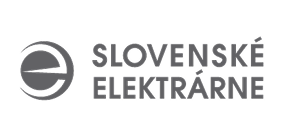
Each week, we bring you 5 stories that resonated the most in our internal Slack channel #AI-news. We write the newsletter using various AI tools because we're an AI company and our marketing wants to move with the times too. 😎
Today you're reading the 40th issue in a row.
#1
Advanced Voice Mode 🗣️: OpenAI brings more natural communication to ChatGPT 🧠🛠️.
OpenAI has launched "Advanced Voice Mode" (🗣️ voice conversation with GPT) for ChatGPT, which has five new voices and better speech recognition for paying users 🎙️. The goal of this new feature, which is currently only available to Plus and Teams users, is to make communicating with ChatGPT feel a little more natural ✨. The design has also been brought to life with new animated graphics that show the voice mode in action 🎬.
In the spirit of personalization, OpenAI also offers new voices - Arbor, Maple, Sol, Spruce and Vale 🌳🍁. In addition to better voice options, AVM now understands different accents better and responses come faster ⚡. Although this feature is gradually being rolled out worldwide, we'll have to wait for it 🕰️. This tweak is not yet available in the EU, UK and some other regions 🌍.
OpenAI is also adding more customization options with tools like Custom Instructions and Memory 🛠️, which will help ChatGPT remember what you've talked about before and tailor its responses to your preferences 🧠.
#2
OpenAI's Chief Technology Officer, Mira Murati, is leaving the company after 6.5 years in the midst of significant change 🤖🏢.
OpenAI's Chief Technology Officer Mira Murati, along with two other senior executives, is leaving the company during a crucial $6.5 billion funding round 💰.
Murati, an important figure in key OpenAI projects such as GPT-4 🤖, had been with the company for 6.5 years. Her departure, along with the recent departures of other senior people, is generating attention as OpenAI plans to become a for-profit company 🏢 (Sam Altman, CEO, is expected to take a 7% stake in the company 📈).
These major changes in leadership may affect both OpenAI's fundraising efforts and its position in the rapidly changing field of artificial intelligence 🤔, and it is questionable how OpenAI will deal with this situation and what impact it will have on its future 🚀. What do you think?
#3
Artificial intelligence powered by nuclear reactors 🔋⚡? Microsoft explores new possibilities 🌍.
Microsoft is exploring the possibilities of using nuclear energy to power its data centers, as training AI requires a lot of electricity ⚡.
The company is looking for a person to lead its strategy of using small modular reactors (SMRs) 🔋. These reactors are considered simpler and cheaper to build compared to conventional reactors and could offer cleaner energy as nuclear reactors do not emit emissions 🌍. However, there are concerns about uranium supply, nuclear waste and the complexity of setting up this infrastructure 🏗️ SMRs need highly enriched uranium, most of which comes from Russia, which has kick-started efforts to build a domestic supply chain in the US 🇺🇸
The move by Microsoft is part of a broader commitment to sustainable energy ♻️, but it still faces a lot of hurdles before the idea becomes a reality 🏞️. It could be an important step in the company's climate plans and also make nuclear an important player in the AI era 🤖.
#4
Europe is lagging behind in the AI race 🤖: Rules are slowing down technological progress 🤖⏳.
Strict European Union rules on AI are causing concern among tech giants like Meta and Google 😟. The fear is that these rules could create a "two-speed" AI world, in which the rest of the world advances faster while Europe lags behind 🌍⏳. While the rest of the world has access to the latest AI technologies like Apple Intelligence 🍏 or Advanced Voice Mode from OpenAI, Europe has limited access to these technologies 🚫🤖.
Meta and other companies worry that unclear rules on data use will prevent AI from learning and adapting to European languages and culture 🌐📚. But the EU aims to protect people from the potential risks associated with AI, especially when it comes to privacy and security 🔐🛡️.
Critics say the rules could slow the development of AI, leaving Europeans with less access to the latest technology 🚶♂️🤖. The main question now is whether Europe can find a compromise that allows progress without compromising security ⚖️💡. What do you think 🤔?
Post on social network X (ex-Twitter)
#5
Meta Connect 🎉: News in AR, VR, and AI 🤖🧠.
Last week, Meta had a Meta Connect 🎉 event and Mark Zuckerberg showed interesting innovations in both hardware and AI 🤖. Here are three of the most important ones:
-
👓 Orion AR Glasses: Meta unveiled Orion, its next generation AR (augmented reality - overlays digital content on the real world) glasses 🕶️ that add digital information to the real world using Micro LED technology. These glasses, still under development 🛠️, can simplify common things such as real-time ingredient identification.
-
🎮 Cheaper Quest 3S VR headset: Meta has revealed a more affordable Quest 3S VR headset for $299.99 💸. It has a lot of the same features as the more expensive Quest 3, but with a lower price thanks to a few adjustments like reduced resolution and fewer sensors, making VR more accessible to more people 🌐.
-
🤖 AI-powered social media: Facebook and Instagram will soon feature AI-generated content 🧠 that's tailored to your interests. You'll even be able to put yourself in imaginative scenes, like a video game character or an astronaut 🚀.
With these innovations, Meta is further pushing the boundaries of AR, VR and AI technologies 🚀, meaning immersive experiences and AI features are even more accessible to everyday people 👫.











